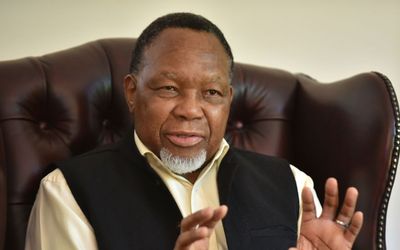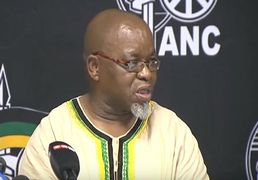A HIGH-powered panel under the leadership of former president Kgalema Motlanthe has been established to probe whether the laws made by Parliament are working and if there are harmful, unintended consequences in the nation’s statutes.
Some of the key areas that have been in the news are land reform, equality laws and red tape hindering the establishment of small businesses.
The 17-person panel, which will advise the Speakers’ Forum on whether laws are working as they should, includes former justice minister Brigitte Mabandla, former Reserve Bank governor Tito Mboweni, former auditor-general Terence Nombembe, public health expert Olive Shisana, land reform expert at the University of Cape Town Aninka Claassens, Haroon Bhorat, Alan Hirsch, former United Nations special ambassador Judge Ravi Pillay and Vivienne Taylor.
When she introduced the advisory panel yesterday, National Assembly Speaker Baleka Mbete said too many laws had been approved since 1994, so the panel would concentrate on areas such as equality, unemployment and land reform.
Deputy Speaker Lechesa Tsenoli said the panel was receiving funding from the United Nations Development Programme. He said the panel was a response to frustrations as a result of ineffective implementation of laws, and it would do research and gather evidence and submissions from the public. He added that land reform and restitution would be a key area.
Ms Mbete said: "The indications are that equality laws have not worked."
Mr Tsenoli said the review panel would make recommendations and these could include amendments to legislation and even the scrapping of inoperable laws.
When asked if the panel were simply repeating the work already done by Parliament, he said: "Because the panel is independent, it will be able to look at laws passed by Parliament better than the committees of Parliament."
Dr Shisana said the panel could take a fair look at the laws on the statute book because it was independent and was not politically motivated.
Mr Motlanthe gave the assurance that submissions would be taken from the public and that there would be hearings across the country.
Judge Pillay said consultations with the judiciary would form an important part of the panel’s work at both the level of the High Court and the Magistracy.
The panel will take a year to complete its work.

Kgalema Motlanthe. Picture: FREDDY MAVUNDA
A HIGH-powered panel under the leadership of former president Kgalema Motlanthe has been established to probe whether the laws made by Parliament are working and if there are harmful, unintended consequences in the nation’s statutes.
Some of the key areas that have been in the news are land reform, equality laws and red tape hindering the establishment of small businesses.
The 17-person panel, which will advise the Speakers’ Forum on whether laws are working as they should, includes former justice minister Brigitte Mabandla, former Reserve Bank governor Tito Mboweni, former auditor-general Terence Nombembe, public health expert Olive Shisana, land reform expert at the University of Cape Town Aninka Claassens, Haroon Bhorat, Alan Hirsch, former United Nations special ambassador Judge Ravi Pillay and Vivienne Taylor.
When she introduced the advisory panel yesterday, National Assembly Speaker Baleka Mbete said too many laws had been approved since 1994, so the panel would concentrate on areas such as equality, unemployment and land reform.
Deputy Speaker Lechesa Tsenoli said the panel was receiving funding from the United Nations Development Programme. He said the panel was a response to frustrations as a result of ineffective implementation of laws, and it would do research and gather evidence and submissions from the public. He added that land reform and restitution would be a key area.
Ms Mbete said: "The indications are that equality laws have not worked."
Mr Tsenoli said the review panel would make recommendations and these could include amendments to legislation and even the scrapping of inoperable laws.
When asked if the panel were simply repeating the work already done by Parliament, he said: "Because the panel is independent, it will be able to look at laws passed by Parliament better than the committees of Parliament."
Dr Shisana said the panel could take a fair look at the laws on the statute book because it was independent and was not politically motivated.
Mr Motlanthe gave the assurance that submissions would be taken from the public and that there would be hearings across the country.
Judge Pillay said consultations with the judiciary would form an important part of the panel’s work at both the level of the High Court and the Magistracy.
The panel will take a year to complete its work.


























Change: -0.47%
Change: -0.57%
Change: -1.76%
Change: -0.34%
Change: 0.02%
Data supplied by Profile Data
Change: -1.49%
Change: 0.08%
Change: -0.47%
Change: 0.00%
Change: -0.04%
Data supplied by Profile Data
Change: -0.13%
Change: -0.05%
Change: -0.06%
Change: -0.37%
Change: 0.23%
Data supplied by Profile Data
Change: -0.39%
Change: -0.32%
Change: -0.07%
Change: 0.35%
Change: 0.57%
Data supplied by Profile Data